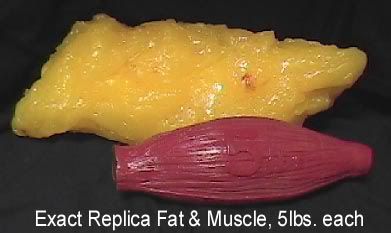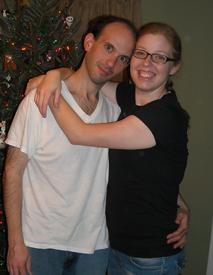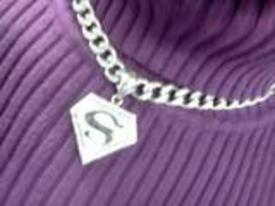"Muscle weighs more than fat"

trekkiebeth
Posts: 172
Last week was my first time going to the gym in months. I worked out 4 days last week. I went out to a restaurant twice last weekend, but both times my boyfriend and I split a plate so we'd eat less. I ate well every other day. Yesterday I was at the same weight that I was the previous Monday (when I started weighing myself again), and this morning I was up a pound.
In frustration, I wrote "Eating less and exercising makes me gain weight" on Twitter. A few people wrote back with, "Remember that muscle weighs more than fat!" I've been doing only cardio so far. I was under the impression that you had to do some serious work with weights and eat a certain number of calories in order to actually build pounds of muscle. Is it really possible that my weight gain is due to increased muscle mass?
In frustration, I wrote "Eating less and exercising makes me gain weight" on Twitter. A few people wrote back with, "Remember that muscle weighs more than fat!" I've been doing only cardio so far. I was under the impression that you had to do some serious work with weights and eat a certain number of calories in order to actually build pounds of muscle. Is it really possible that my weight gain is due to increased muscle mass?
0
Replies
-
It is not very likely that in only a week you have gained enough lean muscle mass to see that reflected on the scale. If you just started working out again after quite some time, the more likely culprit is water retention. Make sure you are getting at least 8 cups each day (more if you are exercising) and your body will hold on to less of it.
Good luck!!0 -
Yeah, that line gets touted quite a bit. There's no way that in a week you could build a measurable amount of muscle.0
-
Good question, I hear this one a lot. It is true that muscle weigh's more than fat but it takes weeks if not months to put on pounds of muscle only if you are working out 3 to 5 times a week. For some people with high metabolism it can take 6 months or a year to put on 5 pounds of muscle. In that time, they probably would lose lots of body fat...which is the real goal here or should be.
Finding the right daily calorie intake right for your individual needs is an art more than science sometimes. You have to know how much daily activity you do. If you sit in a chair all day for work...your calorie needs could be lower than you might think.
Also...what struck me is how you expect instant results.
If you have a perfect week, (exercised three or four times, and ate right every day), you might lose a pound or two.
In one day you can weigh yourself and if you happened to drink more water that day, you weigh more. You have to look at it over weeks. This is a long term thing...nothing is quick and easy in my experience.
Measure your improvement or lack of over a few weeks to make a more accurate assesment and don't worry bout muscle. No one puts on muscle that easily and even if you did, you would lose fat and look much better. A muscled up body burns fat very efficiently and requires MORE calories. Someone without much muscle does not burn as efficiently.
B0 -
It is not very likely that in only a week you have gained enough lean muscle mass to see that reflected on the scale. If you just started working out again after quite some time, the more likely culprit is water retention. Make sure you are getting at least 8 cups each day (more if you are exercising) and your body will hold on to less of it.
Good luck!!
Yes i agree,Just keep drinking plenty of water and you will notice a big difference.0 -
From what I understand from Banks, you can't really build muscle mass while on a calorie deficit. That said, If you've only recently started going to the gym and its been a while, your muscles might be retaining water in the process of repairing themselves after a workout. Some of the biggest changes on the scale I actually see are after a hard week of working out and a rest day.
And it might be entirely unrelated to your working out. Are you tracking your sodium? When my sodium is up I can see everything from no loss to a gain of 2-3 pounds depending on how much I went over.0 -
Actually since you have started working out again, your muscles are retaining water to repair itself. It may take a few weeks for that to go away, but you haven't gained any significant muscle mass, but you haven't gained any fat. Also, eating out can be bad, even if you try to be healthy. Sometimes the sodium content of something you think is low, really isn't.
I wouldn't stress over it. You will see the results soon enough.0 -
The scale is a relentless. Don't let it get to you. I would say this: Fat is voluminous - so you can lose inches of fat and fell firmer without dropping much on the scale.
My weight can fluctuate 4 pounds a day from morning to evening - so I try to stay off the scale - and when I do weigh in - it's always first thing in the morning on an empty stomach. It's a digital scale - there is a lucky tile in the bathroom where If I move to that tile I can make it 1/2 pound less. So it can get pretty subjective over the short term. Over the months if you stick with it -you will win.
I went to group exercise classes 5 days a week (1 hour classes) and was on a "good" Mediterranean type diet and only lost 9 pounds in 90 days. I switched to the Slimdown for Life by Larry North - the first page said "Any diet you can't do for the rest of your life is not worth doing for a day". I was hooked - and it's worked for me the last 60 days I've dropped about 20 pounds.0 -
One pound is pretty minimal. I lost 1 lb. the last time I got my hair cut
 Seriously, I notice my weight fluctuates by 3 lbs. regularly, and 5 lbs. once a month...so, I think it is likely water or just regular weight flux. If you ate alot of sodium yesterday, you've probably actually lost some real weight... 0
Seriously, I notice my weight fluctuates by 3 lbs. regularly, and 5 lbs. once a month...so, I think it is likely water or just regular weight flux. If you ate alot of sodium yesterday, you've probably actually lost some real weight... 0 -
I'm not entirely sure. I have big leg muscles from figure skating for 14 years, and they have not been used much in the last couple of years. But when I started running and skating again I noticed that they were toning back up. Then from there I started to loose weight. I did notice that I gained a pound or two, but it would went away quickly.
I also agree with most of the people that it is not muscle but maybe water retention or your sodium. but don't let this deter you from drinking tons of water, your muscles really need it.0 -
There are many possible reasons you seem to have gained weight. I think it's highly unlikely that you have actually gained a pound of fat in a week! You would have needed to eat 500+ more calories than usual for the whole week in order for that to happen. More likely, you are retaining some water from eating out over the weekend. Restaurant food has much more sodium in it than we usually think, and that can cause you to "gain more". Also, if this exercise routine is new to you, your muscles may be responding by retaining water. It usually takes the body a while to adjust to changes in exercise.
I know it's frustrating, but please don't give up! I was eating carefully, logging my food, and exercising for four weeks, and I still hadn't lost any weight. I had to give it a few more weeks before the weight started to come off. But now I've lost 3 pounds, and I feel terrific!
A few things you might try:
1. Keep doing what you're doing, exercising, eating well, and drinking lots of water. Even if you're not seeing a change in the scale right away, you're still doing something good for your body--and that's worth it!
2. Consider not weighing yourself for a week or two. I was weighing myself daily during my first month here, and I got incredibly frustrated seeing the same couple of numbers show up. I'm now weighing myself only a couple of times a month, and I feel so much less pressure.
3. Take your measurements. Even if you aren't losing weight on the scale, you may well be losing inches.
4. Don't give up! Take it moment by moment, and make as many good choices as you can. All of our bodies are different, and sometimes it takes a while for things to kick into gear. Even if you don't lose weight in the time frame you want, it still will happen if you stay consistent!
Good luck! You're worth it! Keep on using this site--its members have a wealth of information, support, and advice to offer. I feel so blessed to have found MFP!0 -
i beg to differ....muscle does not way more than fat....it is not a big in comparison either.....its more than likely water or fluid storing in body...0
-
A pound of muscle weighs the same as a pound of fat. Muscle is more dense than fat, so it takes up less space. However, muscle does not weigh more than fat. You can choose to be fluffy @ 150 lbs. then that is going to look much different than say Jillian Michaels @ 150 lbs. You're going to take up more s p a c e.0
-
I changed my settings after reading all your replies, so now I'll be able to track my sodium intake. Hopefully that will help me make sure I don't have too much, and I'll continue to drink lots of water. I've also decided to take a break from stepping on the scale for at least two weeks so that I stop stressing so much.0
-
Don't worry, you're not gaining muscle. But you're not gaining fat either.
Your muscles need extra water when you start a new exercise to keep up with the repairs, sometimes a bit more so when you're on a deficit. And that can make you gain "weight" depending on how much you're exercising. Just remember that density is not mass. You can very well lose a lot of inches without losing "weight" at first. But the weight will come off too eventually.
As for fat not being bigger in comparison to muscle ... looks bigger to me! 0
0 -
Thank you! You're exactley right. A pound is a pound is a pound is a pound!
I'm 150 lbs and 5'9" and Jillian looks a hell of a lot better than I do!!!!!!!!!!0 -
Don't worry, you're not gaining muscle. But you're not gaining fat either.
Your muscles need extra water when you start a new exercise to keep up with the repairs, sometimes a bit more so when you're on a deficit. And that can make you gain "weight" depending on how much you're exercising.
As for fat not being bigger in comparison to muscle ... looks bigger to me!
Fat takes up more SPACE than muscle, when you are comparing the two, but a pound is a pound is a pound, whether you are weighing a pound of "rocks" or a pound of "feathers" they will still WEIGH the same. The VOLUME (AKA SPACE) that they take up will be considerably different.
OP, you mentioned restaurant eating, so between that and the increased exercise, I am voting with those above me in stating these things explain why your weight is not dropping. BTW, water flushes sodium, so bottoms up!!:drinker: :drinker: :drinker:0 -
You should take in no more 2500 mg of sodium per day. Restaurant food is notorious for high sodium, no matter how good you try to be.0
-
Actually since you have started working out again, your muscles are retaining water to repair itself. It may take a few weeks for that to go away, but you haven't gained any significant muscle mass, but you haven't gained any fat. Also, eating out can be bad, even if you try to be healthy. Sometimes the sodium content of something you think is low, really isn't.
I wouldn't stress over it. You will see the results soon enough.
agreed, the sodium in take away is HUGE. do not sweat it0 -
You should take in no more 2500 mg of sodium per day. Restaurant food is notorious for high sodium, no matter how good you try to be.
so true.......early on I ate 1/2 a "good" meal all in my calorie range. it had 2500 g of sodium!!!!:noway: From then on I watched closer and told the waitress.......NO SALT PLZ ask the cook to use some other seasoning.
Sauces are already made........but fresh fish and baked potatoes and steamed veggies are delish, one cook had a ball making ne his own version of mahi and veggies......OMG I can still taste it!0 -
Adding significant amounts of lean muscle mass very quickly is actually quite difficult for most people, and certainly doesn't happen overnight.
As others have said it's about muscle being denser. Very crudely speaking, say I immersed two people, one after the other, in water and the amount the level rose was identical... they had exactly the same volume (call it "same size" for arguments sake). But then we discovered that one of them was 10 kg heavier than the other. That heavier person (ok, this is a bit simplistic, but assuming all other factors are equal) almost certainly has a lower fat % and is more muscular.
Another way of looking at it. Recently I was standing next to one of the world's top rugby props. In rugby, a prop is the position most requiring strength, usually not overly tall but stocky and powerful. Although he'd weigh over 110kg and is incredibly strong, he did not actually look really big in normal clothing. I would not have taken a second look in the street. If I'd been looking at an obese person of only say 5'10" and 110 kg they'd have looked noticeably big. Lean muscle occupies much less space than a similar amount of fat.
The relevance of muscle being denser is not so much that if your weight is going up you're suddenly packing on muscle (it can happen for a small percentage of people, but is really unlikely). The relevance is that a person who tends to a very muscular build will most likely have a higher ideal weight than BMIs (which only take into account height and weight, and are based on population averages) might indicate.
Hope I explained that OK?0 -
david1956 - Yes, you explained that very well. Thank you!0
-
Thanks for posting this trekkie. I am in the exact same boat as you today. 1 good week of working out + too much sodium & not enough water = 5 lbs weight gain! Eek! I'm doing my best to overlook those 5 lbs that previously looked so good as loss on my ticker.0
-
I changed my settings after reading all your replies, so now I'll be able to track my sodium intake. Hopefully that will help me make sure I don't have too much, and I'll continue to drink lots of water. I've also decided to take a break from stepping on the scale for at least two weeks so that I stop stressing so much.
This has made ALL the difference for me. I started working out consistently in Feb, but was not losing anything! Nothing. It was soooo discouraging. I started here in June and am finally losing. The key has been watching my sodium. I am vegetarian and the sodium in fake meat is crazy high. Even whole wheat bread is kinda high. I've been over a few times, but I am finding if I stay under that 2500mg, I lose. Also, as some others said, look at the overall trend. Aunt Flo came for a visit a week ago and I didn't lose anything. BUT I didn't gain either. I kept doing my thing and a week later, I showed a 2lb drop (and my settings are for 1lb/week!)
Good luck. 0
0 -
Don't worry, you're not gaining muscle. But you're not gaining fat either.
Your muscles need extra water when you start a new exercise to keep up with the repairs, sometimes a bit more so when you're on a deficit. And that can make you gain "weight" depending on how much you're exercising. Just remember that density is not mass. You can very well lose a lot of inches without losing "weight" at first. But the weight will come off too eventually.
As for fat not being bigger in comparison to muscle ... looks bigger to me!
Now that is quite the image. I have alot of people tell me that Muscle weighs more than fat (I guess they are trying to be supportive) as I have been working out 3x a week for 8 months without much of a weight loss..but I think I just need to amp it up. Thanks for posting this photo!0 -
Never mind....just read the whole post and I hadn't said anything that hadn't already been said.
Congrats on the new exercise program. Be patient...it will pay off.0
This discussion has been closed.
Categories
- All Categories
- 1.4M Health, Wellness and Goals
- 394.8K Introduce Yourself
- 44K Getting Started
- 260.6K Health and Weight Loss
- 176.2K Food and Nutrition
- 47.5K Recipes
- 232.7K Fitness and Exercise
- 444 Sleep, Mindfulness and Overall Wellness
- 6.5K Goal: Maintaining Weight
- 8.6K Goal: Gaining Weight and Body Building
- 153.2K Motivation and Support
- 8.2K Challenges
- 1.3K Debate Club
- 96.4K Chit-Chat
- 2.5K Fun and Games
- 4.1K MyFitnessPal Information
- 16 News and Announcements
- 1.3K Feature Suggestions and Ideas
- 2.8K MyFitnessPal Tech Support Questions














